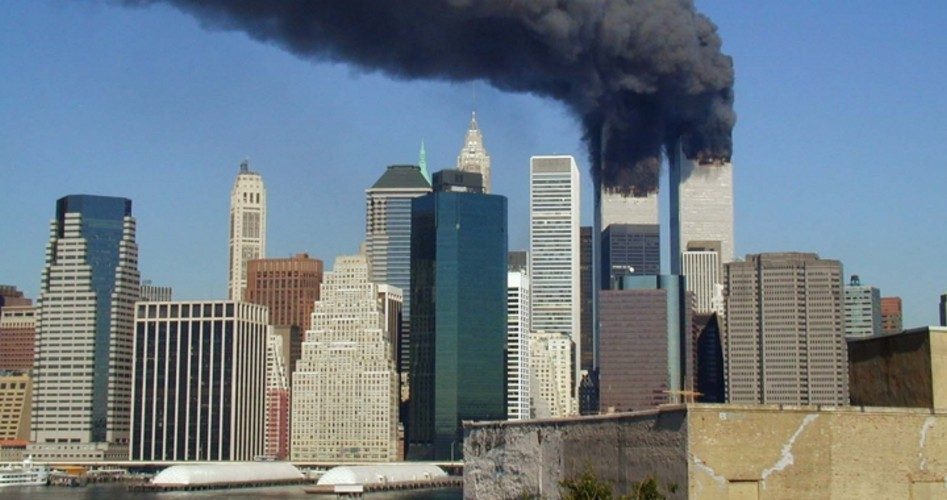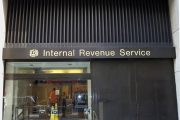
With Wednesday marking the 18th anniversary of 9/11, America is entering a new epoch: As of Thursday, millions of people who were not even alive when the World Trade Center and Pentagon were attacked and when a plane crashed in a Pennsylvania field on its way to destroy 1600 Pennsylvania Avenue will be eligible to vote in the next elections.
Here is the scary part of that: Those millions have never lived in an America that was not under the watchful eye of the Surveillance State. They don’t know what it is like not to be monitored and spied on by their government as part of the “war on terror.”
Let’s consider a few other watershed moments in history that made the world a very different place from the world that existed before those moments.
The invention of the printing press forever changed the way information is disseminated. No longer would books and pamphlets need to be painstakingly copied by hand, line by line, character by character. And while not every application of the printing press has been a worthy endeavor — take pornography and the New York Times for instance — the overall impact has been very positive. The impact of the printing press on education, for instance, cannot be overestimated. Textbooks, worksheets, and other teaching aids can now be produced and updated as needed.
Likewise, the world that had the telephone was very different from the world that came before. Communications were immediate and detailed like never before. News traveled faster and no one had to wait days for a reply. The advent of the automobile meant that travel that had been difficult would be easier and travel that had been impossible would be possible. The airplane would take the transportation revolution even further. Goods could be delivered around the world in the time that it would have taken to get them across town in a horse-drawn carriage.
Add to those world-changing moments the computer and the Internet. Calculations that would have taken a lifetime are completed in minutes and transmitted around the world in seconds.
Moving away from the topic of inventions, the baby boom changed America in a way that nothing had ever done before. More people meant a wider market for goods and services and more people to create, innovate, and deliver those goods and services. The correlation between the sudden shift in demographics and the emergence of America as the most prosperous nation on the planet cannot be overlooked.
All of those moments in history — and more, but alas, the space of this article limits the writer — had both positive and negative effects.
The advent of the post-9/11-born voter is something new and different. There were roughly 2.7 million people born in the 12 months between September 11, 2001 and September 10, 2002. Another nearly 2.5 million were born in the next 12 months. That is a lot of voters for 2020 who have never known freedom from surveillance. This writer has often said of the Surveillance State that what one generation accepts, the next generation expects, and subsequent generations embrace. The post-9/11-born generation is the generation that expects surveillance. Study after study — plus personal experience in dealing with young people — has convinced this writer that most of that generation rarely even thinks of the issue of mass surveillance. When they do, it is worse than when they don’t, because — in this politically divisive climate — they either defend it (if they lean toward the “conservative”) or react to it by adopting the radical thinking of the likes of Bernie Sanders and Alexandria Ocasio-Cortez (if they lean toward the “liberal”). Left almost entirely out of the equation is the stable middle ground that says that the Surveillance State must come down while rights and liberty remain intact. In fact, it must come down so that rights and liberty remain intact.
This means that the job of the constitutionalist patriot is one of getting busy showing the post-9/11-born voter that freedom and liberty are not to be found in the excesses of either what is too often called “conservatism” or “liberalism” — but in constitutionalism. That of course means showing someone who has never seen freedom and liberty what those things mean. Fish don’t know fish are wet because they don’t know what “dry” is, and the post-9/11-born generation — having always lived under the weight of tyranny — does not know they are tyrannized because they don’t know what freedom and liberty are. We have to help them know.
Of course, it would be easier to simply dismiss them as “young and stupid,” but that is neither fair nor wise. They are young, but many of them are far from stupid. And given that they are the incoming freshmen of the electorate, it would serve us well to bring them along to an understanding of the value of freedom and liberty before November 2020. If not, it may not end well for any of us.
Image: todaydesign / iStock / Getty Images Plus




